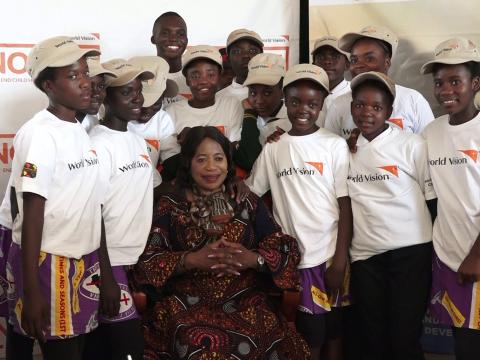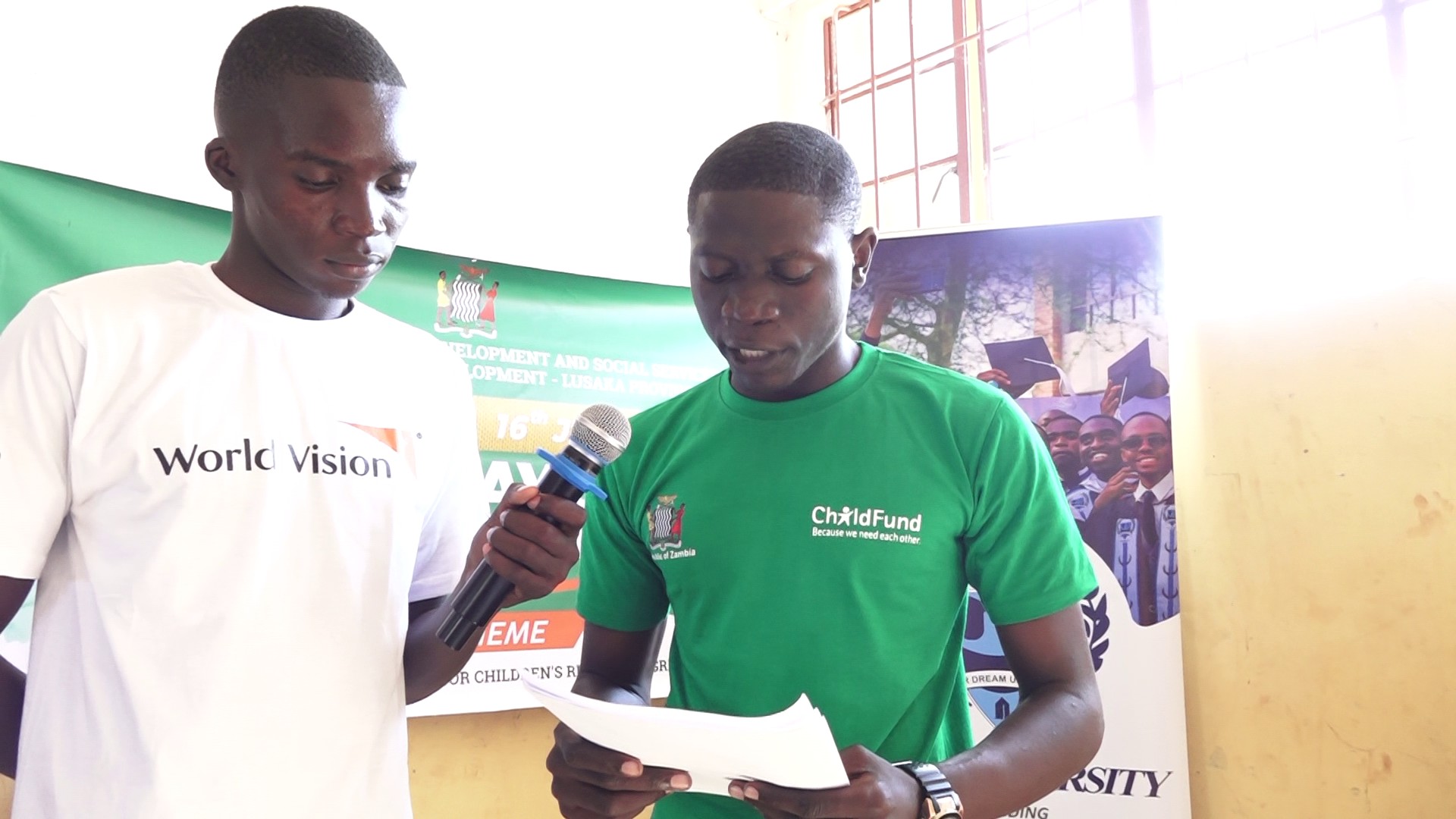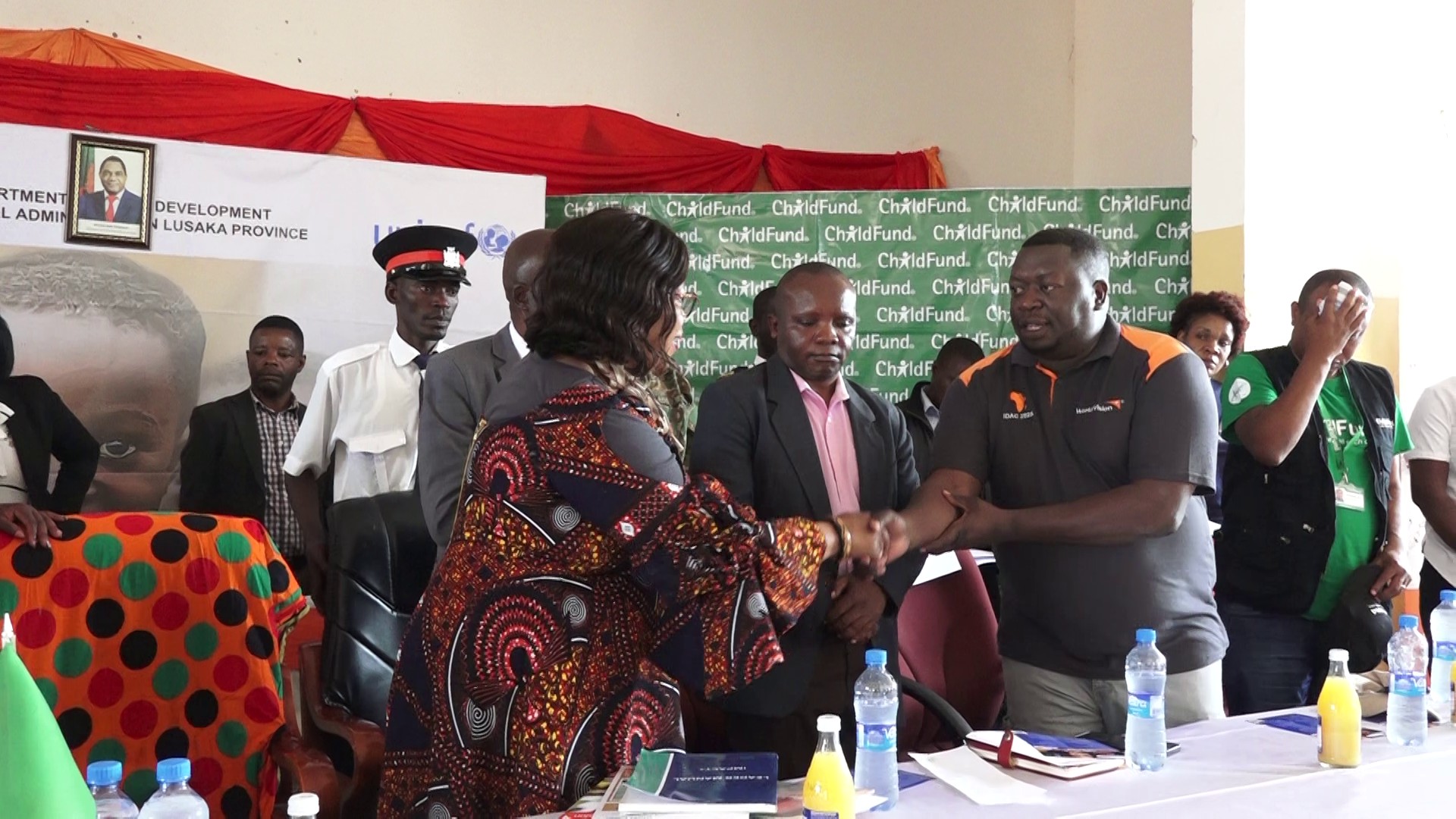Children Take Centre Stage: Call for Simplification of the Child Code Act

By Teddy Mofya, Development Facilitator (CESP) - Zambia
In many rural districts of Zambia, children still face numerous challenges that threaten their well-being and future. Limited access to clean water, inadequate protection from violence, poor educational opportunities, and vulnerability to drought-induced hardships remain persistent issues in areas like Rufunsa and Chongwe. Despite efforts by various organisations and the government, these problems have hindered many children from enjoying their fundamental rights and reaching their full potential.
However, recent developments signal a positive shift. On June 16, 2025, Lusaka Province commemorated the International Day of the African Child in Luangwa District, shining a spotlight on these issues while celebrating progress made through collaborative community efforts. The event, themed “Planning and Budgeting for Children's Rights: Progress since 2010,” showcased how targeted interventions are transforming lives and empowering children to become active participants in their development.

Over 300 boys and girls from the One Chongwe Cluster confidently took to the stage, sharing their voices through speeches, drama, poems, and songs, emphasising their urgent need for safe water, quality education, and protection from violence.
During the celebrations, children also had the opportunity to advocate for legislative reforms, calling for laws like the Child Code Act No. 12 of 2022 to be simplified into child-friendly language.
“Laws are important, but they need to be understandable by children so we can know our rights,” said Samuel, aged 14. Their voices resonated with everyone present, reminding stakeholders of the importance of including children in conversations about their future.
Lusaka Province’s Minister of Lusaka, Hon. Sheal Mulyata, expressed her appreciation for the work being done in these districts.
“Your efforts in Rufunsa and Chongwe have helped protect our girls and boys from violence and vulnerabilities,” she stated. “You have made a real difference, providing clean water, improving education, and supporting child protection initiatives.”

She highlighted some of the key achievements, such as orienting 120 traditional leaders on the Child Code Act, establishing child protection referral systems, and drilling 12 boreholes that now serve nearly 1,900 community members. These interventions have brought tangible benefits, including access to safe drinking water for over 1,200 children and improved sanitation facilities in schools.
The impact of these programs extends beyond infrastructure. Through drought response efforts, 1,540 children in Rufunsa received Micro Nutrient Powders to boost their nutrition, while hundreds of school children in Chongwe benefited from school feeding programs. Relief food was distributed to more than 6,000 households, helping families cope with the drought’s hardships. The installation of water taps and reticulation systems in schools has also improved attendance and health, ensuring children stay in school and thrive.
World Vision Zambia showcased its flagship models, including “Jesus the Source of Living Water IMPACT+” and “Citizen Voice and Action,” demonstrating their commitment to sustainable community-led development and accountability. These models aim to ensure that progress is maintained and scaled across districts, with materials handed over to the government to support ongoing efforts.
As the event drew to a close, Hon. Sheal Mulyata reaffirmed the government’s gratitude for the partnership with World Vision and other organisations.
“Together, we are building a brighter future for Zambia’s children,” she said. “Your dedication and innovative approaches are helping us protect and empower the next generation.”
The celebration not only honoured the achievements but also renewed a collective commitment to prioritise children’s rights, ensuring a better tomorrow for all. As children’s voices continue to grow louder and more confident, there is hope that these efforts will lead to lasting change in Zambia’s rural communities.